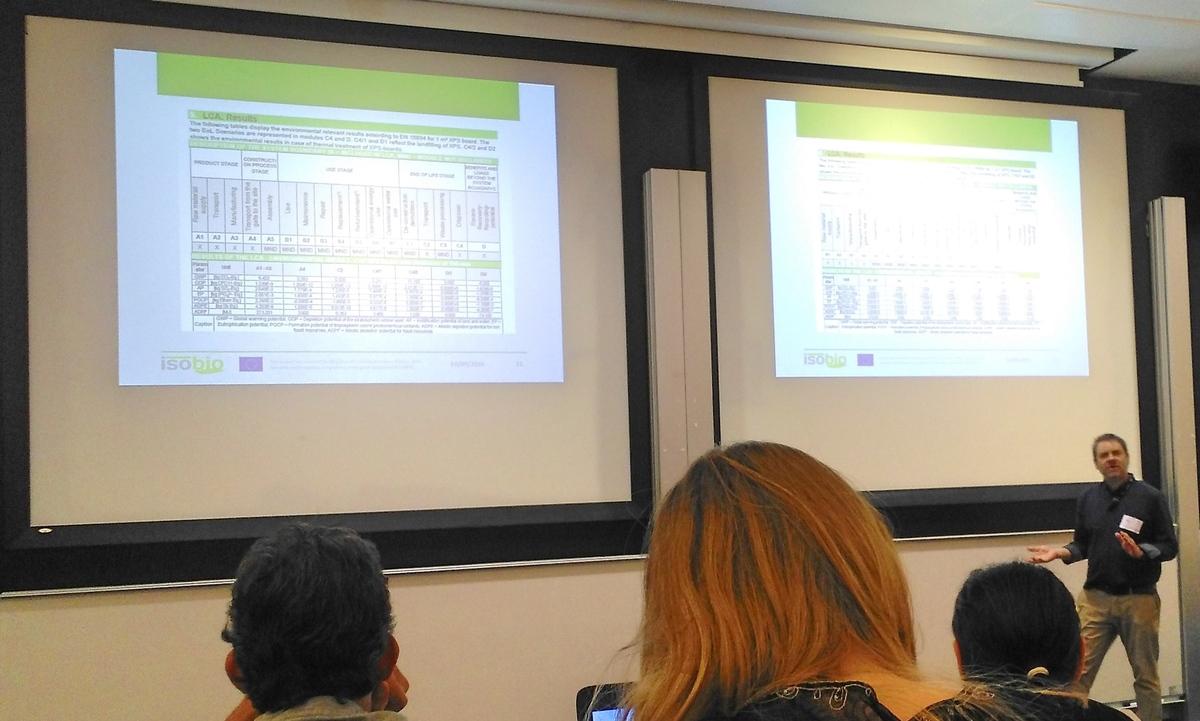Beyond research, towards the market
youris.com EEIG

ISOBIO is emerging from the research phase and taking its first steps towards its target market. Bringing innovation and research outcomes to the attention of experts and stakeholders is essential to tackling some of the possible challenges in the industrialisation phase.
Against this backdrop, ISOBIO innovation partners held a workshop on 14 September this year at the University of Bath. The aim was to stimulate discussion about bio-based insulation materials and the associated environmental and LCA issues. The workshop took place alongside an event held by the Alliance for Sustainable Building Products (ASBP), focusing on embodied carbon issues and providing useful insights and strategies for reducing it.
ISOBIO had the opportunity to share knowledge about major topics such as life cycle assessment and cost analysis, key results of demonstration actions (including, carbon sequestration, waste minimisation, efficient energy and raw material use) as well as a case study of a nearly-zero energy residential building made with straw bales and timber. This highlights a strong link among bio-based building systems, energy efficiency and indoor comfort, allowing strong connection between the bio-economy and energy sectors to be created. The workshop was also an opportunity to hear about ASBP activities associated to the challenges of applying LCA and Life Cycle Costing (LCC) to external thermal insulation composite systems and to embodied carbon policies and decision making tools.
LCA and LCC are essential aspects that can bring research outputs closer to the target market. Engaging with stakeholders, sharing knowledge and best practices is key to stimulating stakeholders’ acceptance of the designed bio-based material, which aims to turn a niche innovation into a mainstream product of the construction sector. ISOBIO is taking its first steps in this direction and, little by little, it will need to address all challenges of industrialisation, firmly drawing on its particular strengths and exploiting the opportunities ahead.



